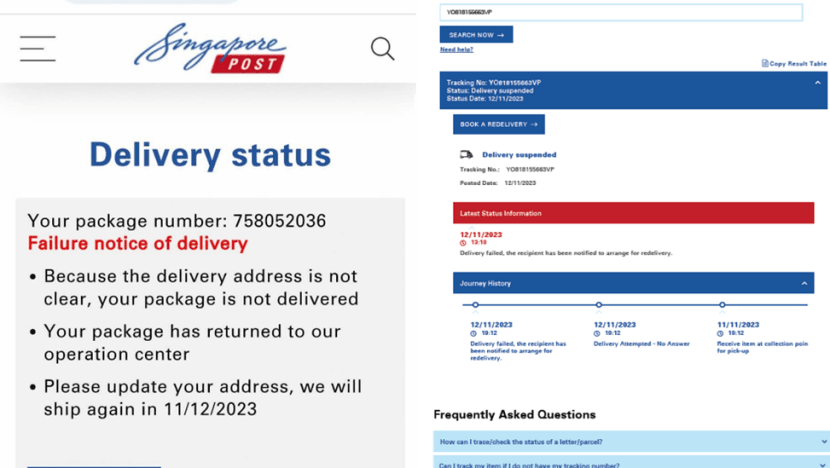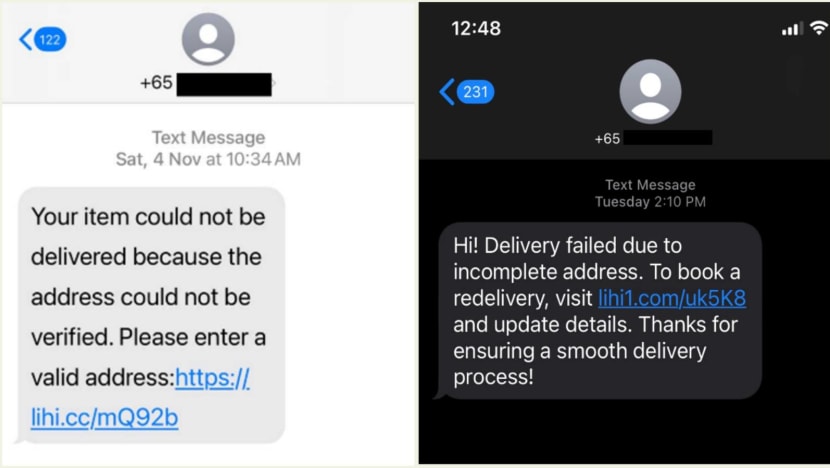Beware of parcel delivery phishing scams this festive shopping season, say police

Scam victims would be directed to a spoofed website to key in their personal details and/or banking credentials. (Images: Singapore Police Force)

This audio is generated by an AI tool.
SINGAPORE: With the festive shopping season underway, Singapore police have again advised people to be on their guard against parcel delivery phishing scams.
At least 360 people have fallen prey to such scams in the first 11 months of the year, with losses amounting to more than S$560,000 (US$422,00), the police said in an advisory on Friday (Dec 15).
Victims would typically receive a text message or email requiring additional payment to facilitate the delivery of their purchased items.
“These text messages or emails are usually designed to appear as if they were sent by postage and e-commerce logistics companies such as Singapore Post and would contain a phishing link," the police said.
Those who click on these links are led to a spoofed website to key in their personal details or banking credentials. They would discover that they have been scammed when they notice unauthorised transactions made to their bank accounts or credit cards.

“With the upcoming festive period and major online shopping events - Christmas, New Year and Chinese New Year - members of the public are advised to be more cautious of such scams," the police said, adding that delivery charges are usually paid upfront when purchases are made.
"SingPost will never send you a text message or email requesting additional payment through an embedded link that demands that you give SingPost your personal or banking information."
Payments to SingPost can only be made through the postal service’s mobile app, SAM machines and post offices.
Related:
The police advised members of the public to always verify the authenticity of the information with official websites or sources, even if they are expecting a parcel delivery.
People should not click on links provided in unsolicited messages or emails.
“Look out for tell-tale signs of a phishing website and never disclose your personal or banking credentials, including one-time passwords (OTPs) to anyone," the police added.
To prevent falling prey to such scams, the police advised members of the public to take steps such as installing the ScamShield mobile app, setting up transaction limits for internet baking and enabling two-factor authentication.
Individuals should check for scam signs with official sources – such as the ScamShield WhatsApp bot – and call the anti-scam helpline, as well as check transaction details before approving any transactions.
Any fraudulent transactions should also be immediately reported to banks.















